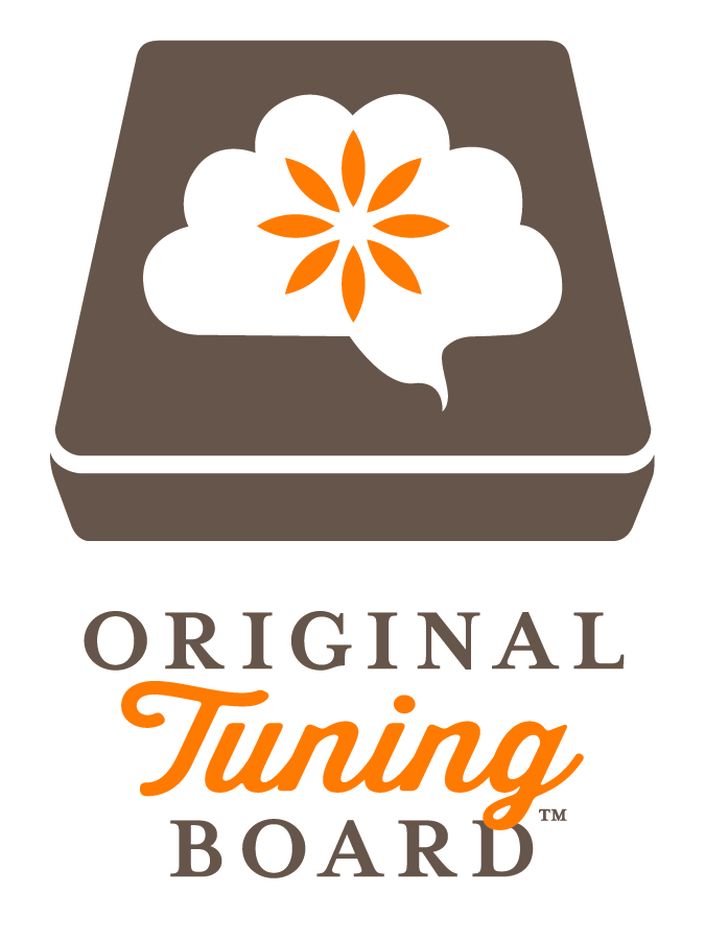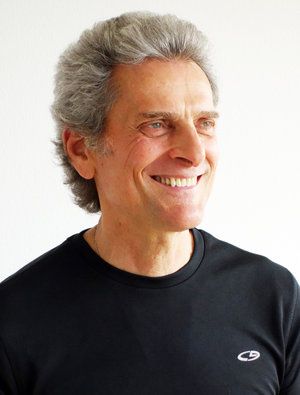
Dancing with Gravity
Using the Tuning Board to Promote Embodiment

“Because the Tuning Board will never be perfectly still, the individual is challenged to find, and quietly attune to, a relative stability, while surrendering rigidity, fragmentation, and holding patterns to motion.”
— Darrell Sanchez, Ph.D.
Eligiibility
USABP Annual Members and Non-Member's freely enrolled here on this site can take courses with or without applying for CE credits (not all courses offer CE credits).
This course will not offer CEs.
Course Costs
- USABP Members do not have to pay the $45 dollar course fee listed on this site.
- This Course is available for $45 to USABP non-members.
Live Event Registrant Information
- USABP Members do not have to pay the $45 dollar course fee listed on this site. Members who want CE credits do have to pay the CE processing fee (when CE credits are listed as available)
- Non-members who paid for the live version of this home study course (at USABP.org) do not have to pay the $45 dollar course fee listed on this site.
- Non-Members, who paid for the live course event or home study version here, and want CE credits do have to pay the CE processing fee (when CE credits are listed as available).
Discount Check-Out Instructions:
For Members and Live Event Paid Registrants
- Use your 100% off discount code during the checkout process.
- eMail info@usabp.org to request your discount code (it will deduct 100% off for this course on this site). Please identify in the email the course you are referring to and whether you are a USABP Member or a Non-Member Live Event Paid Registrant for this course.
NOT A MEMBER or Paid Event Registrant and WANT THE DISCOUNT?! Plus, many more $avings and benefits? Join us. Contact info@usabp.org for more assistance.
Workshop Description
The Tuning BoardTM is a somatic therapy tool that, with minimal use, helps clients begin to experience their own bodies as a source of support and confidence. It is a simple and efficient way to integrate impactful somatic awareness into a course of traditional or somatic therapy. It accelerates embodiment of key resources associated with human verticality and vertical integration, such as grounding, orienting, centering, balance, and connection.
This webinar will introduce and explain the concepts behind this tool. We will demonstrate how it can first be used by the therapist to experience and understand its impact on his or her own embodiment. Then we will demonstrate its basic use with clients. We will invite participants to notice their own experiences of kinesthetic resonance while observing the postural and movement expressions of the model on the Tuning Board.
Main Points of Workshop
▪ An introduction to the Tuning BoardTM, and why it’s a powerful tool for therapists;
▪ Vertical integration: the impact of promoting better transmission of sensory information;
▪ How the Tuning Board promotes embodiment and embodiment resourcing;
▪ How to get on a Tuning Board and use it for oneself;
▪ How to start using the Tuning Board with clients;
▪ How to use the Tuning Board to encourage grounding and functional orienting.
Participants will learn:
> the basic concepts, benefits, and uses of the Tuning Board;
> how to use the Tuning Board themselves, so they can embody and understand the sense of flow and vertical integration in their own bodies before using it with a client;
> how to start working with a client on the Tuning Board. This includes the basics of...
1) evaluating whether a client can stand on the Tuning Board, or should begin by sitting;
2) preparing a client to stand on the Tuning Board;
3) assisting a client to stand on the Tuning Board in a way that increases embodiment, vertical integration and resourcing;
4) kinesthetically attuning to the client while supporting them on the Tuning Board; and
5) helping the client come off the Tuning Board in a way that promotes integration of the experience, including an experiential understanding of grounding.
> how to use the Tuning Board to help clients develop functional orienting capacity (maintaining internal body awareness and groundedness, while being fully present, orienting to, and perceiving their environment -- an essential capacity that is integral to our sense of self and our ability to evaluate and respond to safety or threat in our environment).
Darrell's published articles related to Rolfing structural integration, creativity, the body's memory, and the Tuning Board (a balancing device he invented) may be accessed online at rolfingboulderdenver.com/publications.
Following are Darrell's advanced certifications and degrees in the healing and performing professions:
As an Advanced Rolfer™, Darrell has been serving Boulder and Boulder County, Denver and Denver County through his Rolfing® SI and Trauma Transformationpractice since 1986. For more information about Darrell's work, explore this website or contact Darrell for a free consultation.
More About The Presenter
Creator of the Tuning Board, Darrell Sanchez, Ph.D., is a licensed professional counselor, somatic trauma therapist, Certified Advanced RolferTM & Rolf Movement Practitioner, and Certified Craniosacral Therapist with a background in dance and dance instruction.
He travels internationally to teach therapists how to encourage their clients’ embodiment and embodiment resourcing through the use of the Tuning Board. Dr. Sanchez has published articles on creativity, the body's memory, Rolfing structural integration, the Tuning BoardTM, and vertical integration and resourcing.
As a structural integrator, he brings a deep understanding of human verticality and the primordial relationship with gravity to his psychological work. The common thread woven through all of Dr. Sanchez's work is the facilitation of creative transformation through engaging the whole person.
He has practiced and taught therapeutic modalities based on the integration of mind and body for over thirty years.
Following are Darrell's advanced certifications and degrees in the healing and performing professions:
- Certified Advanced Rolfer™
- Licensed Professional Counselor (LPC)
- Certified Somatic Experiencing™ Practitioner
- Certified Rolf Movement™ Practitioner
- EMDR Certification
- Certified Biodynamic Craniosacral Therapist
- Board Certified Structural Integrator
- Ph.D., Higher Education and Social Change: emphasis on Creativity
- Masters Degree in Psychology
- Bachelor of Arts in Dance
Bibliography
Behm, D., & Colado, J. C. (2012) The effectiveness of resistance training using unstable surfaces and devices for rehabilitation. International Journal of Sports Physical Therapy, 7(2), 226-241.
Marks-Tarlow, T. (2012). Clinical intuition in psychotherapy: The neurobiology of embodied response. New York: W. W. Norton & Company, Inc.
Parker, C., Doctor, R. M., & Selvam, R. (2008). Somatic therapy treatment effects with tsunami survivors. Traumatology, 14(3), 103-109. (Note: describes some embodiment resources)
Payne, P., Levine, P. A., and Crane-Godreau, M. A. (2015). Somatic experiencing: Using interoception and proprioception as core elements of trauma therapy. Frontiers in Psychology, 6:93. Doi: 10.3389/fpsyg.2015.00093
St. Just, A. (2006). Relative balance in an unstable world: The search for new models for trauma education and recovery. Heidelberg, Germany: Carl-Auer. Retrieved from: http://tuningboard.org/St.JustonTuningBoard.pdf
Rolf, I. (1977). Rolfing: Reestablishing the natural alignment and structural integration of the human body for vitality and well-being. Rochester, Vermont: Healing Arts Press.
Sanchez, D., & Gettliffe, V. (2016). Dancing with gravity: Using the Tuning Board to promote vertical embodiment resources and vertical integration. International Association of Structural Integrators Yearbook.
Sanchez, D. (2016). Dancing with Gravity. Somatic Psychotherapy Today, 6(1), 58-61.
Sanchez, D. (2020). Using the Original Tuning Board in Somatic Experiencing. Somatic Psychotherapy Today, 10(2), 42-46.
Siegel, D. J. (2006). An interpersonal neurobiology approach to psychotherapy: Awareness, mirror neurons, and neuroplasticity in the development of well-being. Psychiatric Annals, 36(4), 248-256. (see especially 251-252 on vertical integration.)
The Listening Hand, Ilana Rubenfeld
The Handbook of Body Psychotherapy & Somatic Psychology, Marlock & Weiss
Getting In Touch, Christine Caldwell
Touching, Ashley Montagu
Your Instructor

Creator of the Tuning Board, Darrell Sanchez, Ph.D., is a licensed professional counselor, somatic trauma therapist, Certified Advanced RolferTM & Rolf Movement Practitioner, and Certified Craniosacral Therapist with a background in dance and dance instruction.
He travels internationally to teach therapists how to encourage their clients’ embodiment and embodiment resourcing through the use of the Tuning Board. Dr. Sanchez has published articles on creativity, the body's memory, Rolfing structural integration, the Tuning BoardTM, and vertical integration and resourcing.
As a structural integrator, he brings a deep understanding of human verticality and the primordial relationship with gravity to his psychological work. The common thread woven through all of Dr. Sanchez's work is the facilitation of creative transformation through engaging the whole person.
He has practiced and taught therapeutic modalities based on the integration of mind and body for over thirty years.
Following are Darrell's advanced certifications and degrees in the healing and performing professions:
-
Certified Advanced Rolfer™
-
Licensed Professional Counselor (LPC)
-
Certified Somatic Experiencing™ Practitioner
-
Certified Rolf Movement™ Practitioner
-
EMDR Certification
-
Certified Biodynamic Craniosacral Therapist
-
Board Certified Structural Integrator
-
Ph.D., Higher Education and Social Change: emphasis on Creativity
-
Masters Degree in Psychology
-
Bachelor of Arts in Dance
About Our Courses
Check back as new information on our events happen regularly and updates are ongoing.
These exclusive webinars are brought to you by the USABP and its proud educational and training institute member organizations.
These live and home study webinars are for Psychologists, Social Workers, MFTs. Counselors, Somatic Practitioners, Body Workers, and other Health Professionals.
They often include demonstrations, video and slide presentations, experiential exercises, Q & A discussions, insights from attendees, presenter shares about their personal journey and inspirations, and much more.
These courses content levels serve introductory or beginning level; intermediate level; or advanced level.
For questions or concerns, phone 202-466-1619.
There is no conflict of interest or commercial support for this program.
Satisfactory Completion
When CE credits apply to a course they are made available upon course completion by emailing usabp@usabp.org to request it.
Participants must have paid the tuition fees, logged in and out each day, attended the entire webinar, and completed an evaluation to receive a certificate. Failure to log in or out will result in forfeiture of credit for the entire course. No exceptions will be made. Partial credit is not available. Certificates will be available following course completion. This includes passing the quiz.
Disability Access - If you require ADA accommodations please contact our office 30 days or more before the live event or for assistance with login. We cannot ensure accommodations without adequate prior notification.
Please Note: Licensing Boards change regulations often and while we attempt to stay abreast of their most recent changes, if you have questions or concerns about this course meeting your specific board’s approval, we recommend you contact your board directly to obtain a ruling.
